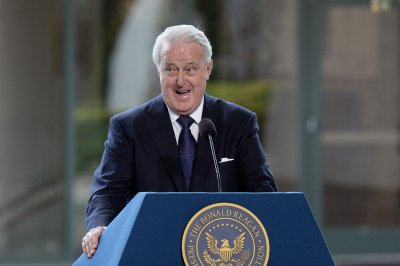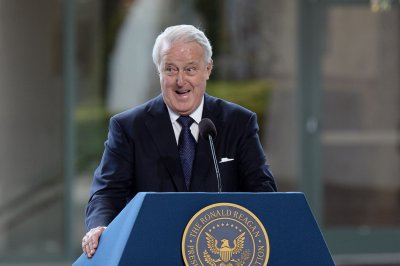Topic: Stephen Harper
Quotes
Two of the three opposition parties don't support the government and say we should be defeated
Canadian minority PM hints at election Aug 14, 2008
This strike will do significant damage to the Canadian economy
Air Canada strike to end Friday Jun 16, 2011
The couple's decision to visit Canada first is a testament to our country's close relationship with the crown and royal family, and an opportunity for all Canadians to take pride in our traditions, history, and institutions
Will and Kate's Canada agenda unveiled May 31, 2011
Any hockey coach can tell you that for a team to continue to win it must have a nucleus of veterans and then gradually add in new talent
Canada gets new Cabinet, 3 new senators May 18, 2011
This country does not represent a geostrategic risk to the world. It is no longer a source of global terrorism
Canada's Harper visits Afghanistan May 30, 2011
Stephen Joseph Harper PC MP (born April 30, 1959) is the 22nd and current Prime Minister of Canada and leader of the Conservative Party. Harper became prime minister when his party formed a minority government after the 2006 federal election. He is the first prime minister from the newly reconstituted Conservative Party, following a merger of the Progressive Conservative and Canadian Alliance parties.
Harper has been the Member of Parliament (MP) for the riding of Calgary Southwest in Alberta since 2002. Earlier, from 1993 to 1997, he was the MP for Calgary West. He was one of the founding members of the Reform Party, but did not seek re-election, and instead joined, and shortly thereafter led, the National Citizens Coalition. In 2002, he succeeded Stockwell Day as leader of the Canadian Alliance (the successor to the Reform Party) and returned to parliament as Leader of the Opposition. In 2003, he reached an agreement with Progressive Conservative leader Peter MacKay for the merger of their two parties to form the Conservative Party of Canada. He was elected as the party's first non-interim leader in March 2004.
Harper's Conservative Party won a stronger minority in the October 2008 federal election, showing a small increase in the percentage of the popular vote and increased representation in the Canadian House of Commons, with 143 of 308 seats. The 40th Canadian Parliament was dissolved in March 2011, after a no-confidence vote that found the Cabinet in contempt of parliament was passed by the opposition parties.
It uses material from the Wikipedia article "Stephen Harper."














